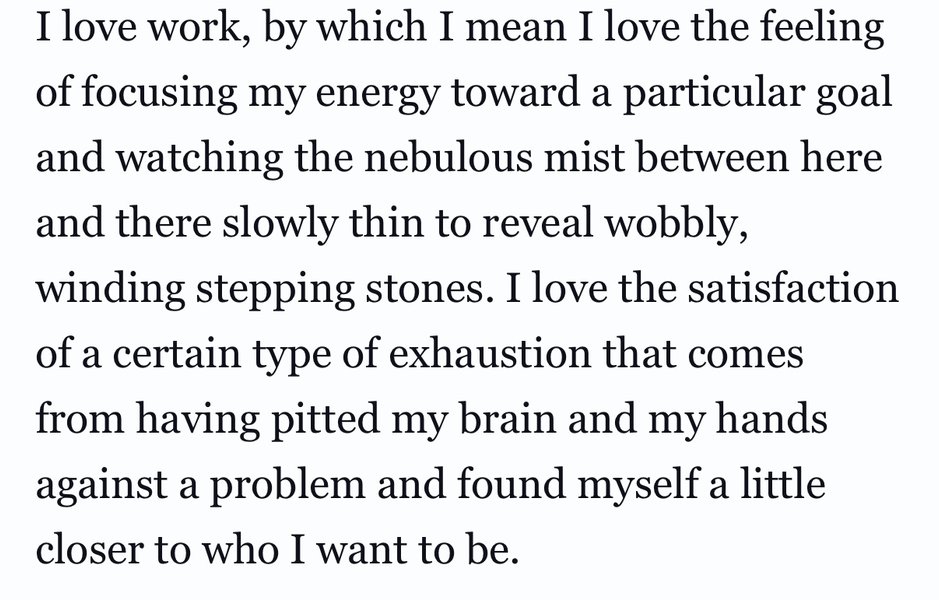On building of All Trades
Generalists are force multipliers.
I am aware that I shouldn’t judge how people try to escape the 9-to-5 grind. I am aware that a job’s purpose is money, not emotional enrichment. I know!
What I am instead arguing for is something more expansive. The thing you should work hard at is everything . Finding ways to imbue each moment with meaning and purpose and effort is the only path... See more
What I am instead arguing for is something more expansive. The thing you should work hard at is everything . Finding ways to imbue each moment with meaning and purpose and effort is the only path... See more
Evan Armstrong • Devote Yourself to the Cause of Your Life
Everyone wants to be connected
But we hesitate to be the connector.
Everyone wants to be trusted, but we hesitate to trust.
And everyone wants to be respected, but we often fail to offer our respect.
What an opportunity.
But we hesitate to be the connector.
Everyone wants to be trusted, but we hesitate to trust.
And everyone wants to be respected, but we often fail to offer our respect.
What an opportunity.
Everyone wants to be connected
We are in an age of noise.
The frameworks that got us here, of jobs-to-be-done or product-market fit, will be insufficient going forward. For founders to have extraordinary outcomes, they will have to find alpha in markets that aren’t easily understood.
Which is to say, technology alone won’t be enough. The other essential ingredient will be taste.... See more
The frameworks that got us here, of jobs-to-be-done or product-market fit, will be insufficient going forward. For founders to have extraordinary outcomes, they will have to find alpha in markets that aren’t easily understood.
Which is to say, technology alone won’t be enough. The other essential ingredient will be taste.... See more
Evan Armstrong • Want to Build? Technical Excellence Won’t Be Enough.
Job titles are just the most visible ladder of them all. It’s interesting that pompous executive job titles were invented during the Victorian era. This is when we started the trend of calling a cleaner a hygiene technician. A bin man became a waste management and disposal technician. Later on, a call-center worker became a communications... See more
Anne-Laure Le Cunff • The tyranny of job titles: from vanity growth to personal growth
Generalists have shirked the the notion of a true job title to fit their work and have followed the thread of providing value and making an impact. No wonder there’s a group of talented professionals hiding in plain sight given how constricting the traditional job titles have become in affirming our professional worth.
The year of everyday risks
How does one live more alive ?
The concrete way I will try is taking more risks.
Not Bet the farm on red, or Climb Mt. Everest -type risks, but rather, the everyday ones.
Everyday risks — the small actions that come with a twinge of discomfort.
How does one live more alive ?
The concrete way I will try is taking more risks.
Not Bet the farm on red, or Climb Mt. Everest -type risks, but rather, the everyday ones.
Everyday risks — the small actions that come with a twinge of discomfort.



